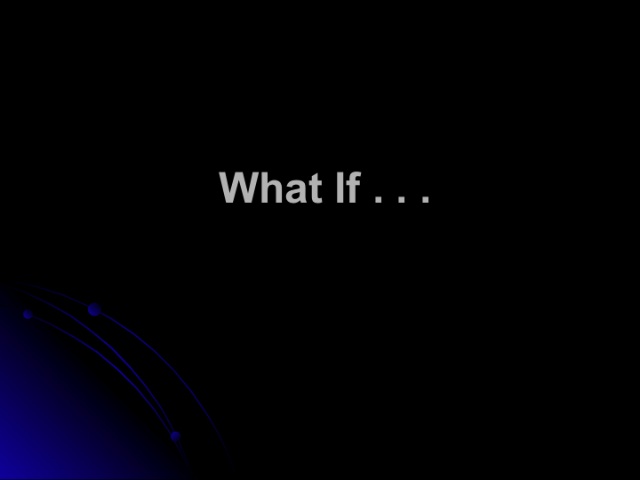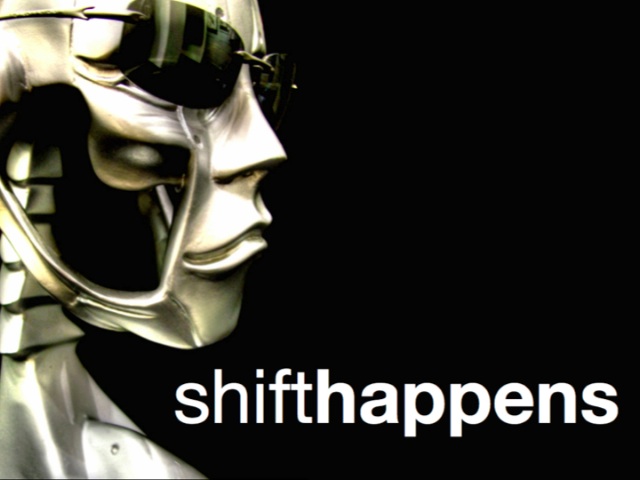My Headteacher recently handed me a disc and said that I should watch both 'What If...' and 'Shift Happens'. My Head had recently attended a course and two presentations were shown to provoke minds into thinking about the future of education, teaching and learning.
I found them hugely powerful and thought-provoking, and wanted to share them with you here.
What If looks back on statements that people in a variety of educational roles have made over the past few centuries, and some comments made, worryingly, since the turn of the millennium. The key message here, of course, is what if we'd listened to all those people along the way. What are we saying today that could be having an impact on what could happen tomorrow?
Shift Happens offers plenty of provocations through the use of statistics and reflects on where the world and technology has been and is heading.


Both presentations have really opened my eyes to maintaining an open mind about new possibilities and that we simply can't afford to make the same mistakes as we did in the last Century. My Head often says if we carry on doing the same things as we did yesterday, we can expect the same outcomes as of yesterday. If we want to do better for our children, we have to change what we do.
We are educating a different generation and this means embracing new technologies rather than immediately disregarding them. However, it doesn't mean building a curriculum around the technology, but instead use it to enhance and add value to teaching and learning.
For me, probably the most significant aspect of the Shift Happens movie is this statement:
"We are currently preparing our students for jobs that don't yet exist... using technologies that haven't been invented... to solve problems we don't even know are problems yet."
It just shows how open minded we need to be if we are to prepare our children properly for tomorrow's world. Learning knowledge, key facts and figures won't help the children of tomorrow, yet to give them skills to find out information for themselves, contribute their own understanding and challenge one another are much higher order skills.
What this means in reality is give pupils opportunities to be creative, to make decisions, problem solve, debate, discuss, be inventive and above all else, be themselves. If we allow them to develop their own uniqueness, this is what will set them apart from the rest of the world.
What are your thoughts?